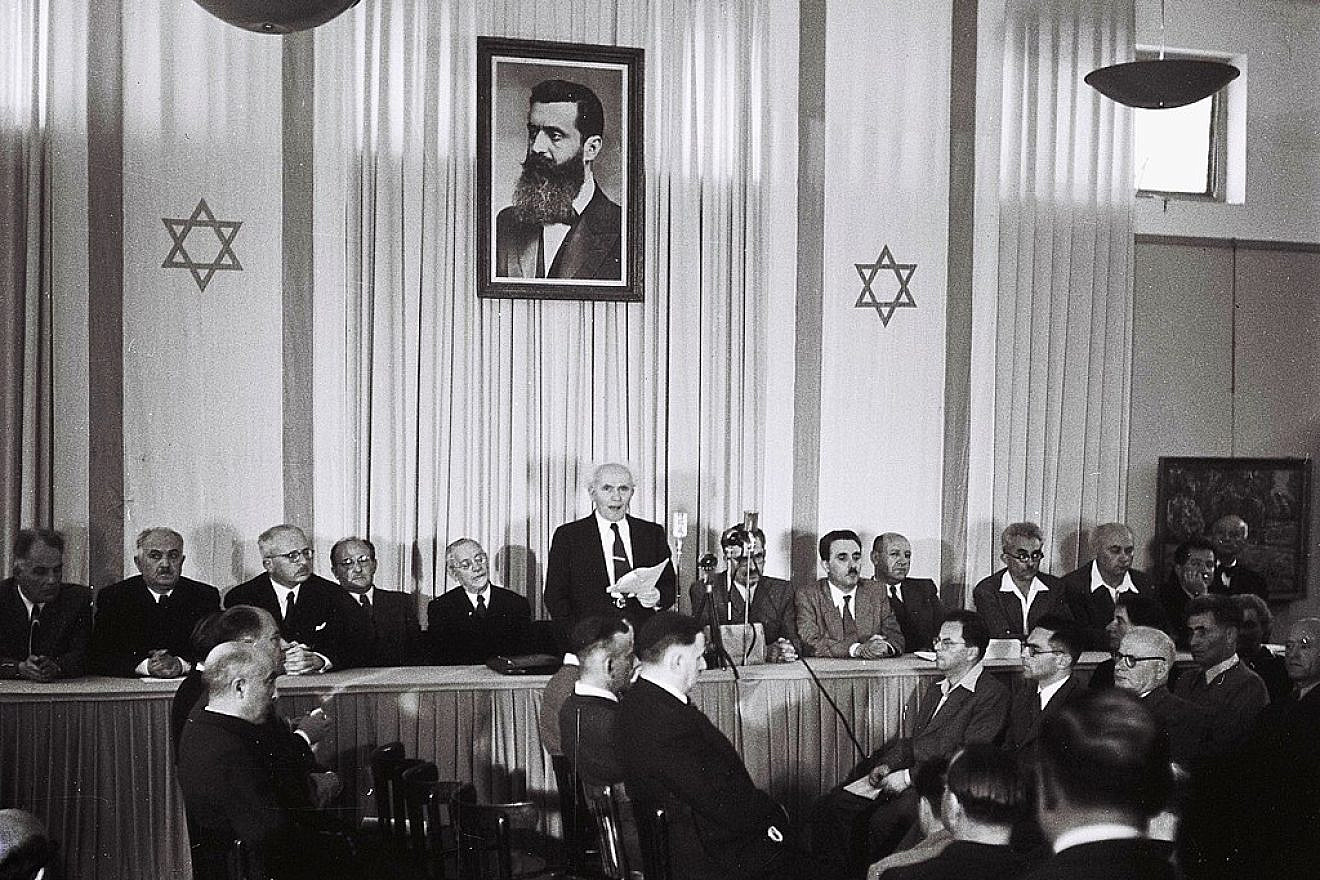When talking about Israel’s Declaration of Independence, we usually focus on its resounding opening sentences: “The Land of Israel was the birthplace of the Jewish people. Here their spiritual, religious and political identity was shaped. Here they first attained to statehood, created cultural values of national and universal significance and gave to the world the eternal Book of Books.”
Or we concentrate on one of the following paragraphs that talks about the natural and historical right to the land, the call for peace with all the inhabitants of the land and the partnership in the fight against Nazi evil.
All these things are good and important. The Declaration of Independence is a work of precise thought. Every word was carefully weighed and examined by the leaders of the Jewish community on the eve of the establishment of the state.
But no less important is the last part of the scroll: the signatures of those in attendance.
Thirty-seven people were privileged to sign the founding document of the State of Israel. They were headed by David Ben-Gurion and among them were Golda Meir, Moshe Sharett, Rabbi Yehuda Leib HaCohen Fishman Maimon and many others. But every time I look at the signatures, I am struck by that of David Remez—a future MK and cabinet minister.
Why Remez? Because his signature is the most prominent of them all. Most of the signers used a pen brought especially for the event so that the signatures would be uniform in size and style. Remez brought his own thick pen with him and thus his signature stands out from all the others.
For me, the story of David Ramez’s signature is not just a historical anecdote. It sends an important message, especially today.
Recently, the Declaration of Independence has become a symbol of the divisive national controversy over judicial reform. Each side claims the Declaration for itself. One side says the document endorses their view of the correct balance between the different branches of government, and the other side claims the exact opposite.
Neither side is correct. The Declaration of Independence belongs to the entire Israeli public. Beside the 37 actual signatures on it, there are millions more invisible signatures. Everyone has signed the Declaration. Each of us with his own special pen, values, stories and hopes. Over the years, we learned to unite around the Declaration, adding more and more signatures. Today, the Declaration is the basis of Israeli identity for all.
The Declaration of Independence must not be read as if it supports only one side of the political map. Such an appropriation will erase many signatures from it. We must not erase; we must do the opposite. Every one of us should take out our special pen, resign the Declaration, find our unique place in the text and then take those pens and continue to write the great Israeli story together.


























